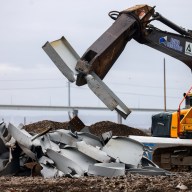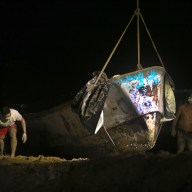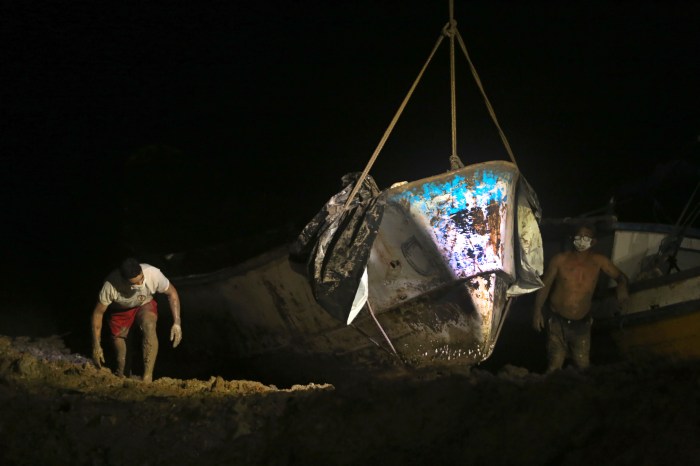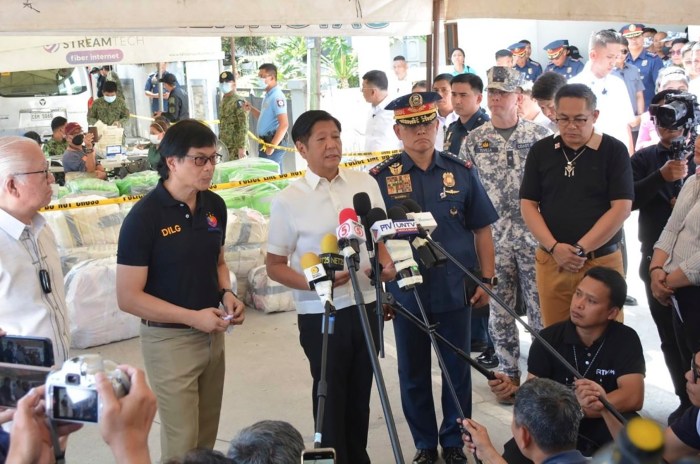By Gabriel Stargardter
MEXICO CITY (Reuters) – The sight of vehicles set ablaze by cartels has mostly been confined to lawless stretches of Mexico’s provinces, so the appearance of burning buses in Mexico City this week has stoked fears that the drug gangs’ violence is spreading to the capital.
The so-called narco-blockade on Thursday in the tough Mexico City suburb of Tlahuac occurred after Mexican marines gunned down eight suspected gangsters in broad daylight, a highly unusual incident that underlined a recent spike in violent crime.
“The city’s authorities have lost control of the situation,” said Jose, a veteran Mexico City policeman who spoke on the condition his surname be withheld.
“Now the cartels are getting stronger, they can’t control them any more. That’s why they asked the marines to come in.”
All told, 206 murder investigations were opened in Mexico City between May and June, making it the bloodiest two month-period on record in the capital, official data show.
Mexico City and its urban sprawl form the economic heart of the country, accounting for roughly a quarter of gross domestic product, according to the OECD, and the rise in violence is a major embarrassment for the Mexican government.
The crime spree mirrors a rising tide of violence nationally that has exposed major law and order shortcomings by Mexican President Enrique Pena Nieto and his ruling Institutional Revolutionary Party, less than a year before the next presidential election.
Mexico City Mayor Miguel Angel Mancera, who harbors his own presidential ambitions, has also come under fire for not doing enough to protect the capital, and for saying repeatedly that drug cartels do not operate in the city.
In a news conference on Friday, Mancera said the suspects belonged to a “a big, violent criminal organization whose operations were no longer confined to Tlahuac,” noting they traversed the city in armed convoys.
“From my point of view, they didn’t have the structures and size that we associate with cartels,” he added.
Mexico’s criminal underworld has mutated in recent years, thanks to a prolonged military-led assault that smashed the cartels into hundreds of informal crews with little experience in cross-border trafficking.
As these smaller groups jostle over the kidnapping and extortion rackets, violence has soared. The country’s murder tally this year is on track to post the highest since modern records began in 1997.
Various factors are seen behind the capital’s rise in violence.
Weak economic growth and chronically low wages drive youths in poor neighborhoods into crime. These troubled youths often extort small business owners, eventually shuttering them which makes jobs even harder to come by, according to local policeman Jose.
He also dismissed the idea that criminal gangs were not in the city, saying both La Familia Michoacana and the powerful Jalisco New Generation Cartel operate in the capital.
Francisco Rivas, director of the National Citizen Observatory, a civil group monitoring justice and security in Mexico, said regardless of what constitutes a cartel, the days of the capital being isolated from the drug violence were over.
“What’s happening in Mexico City reflects the national outlook,” he said. “We have a crisis of organized crime.”
(Additional reporting by Lizbeth Diaz and Ana Isabel Martinez; editing by Dave Graham, G Crosse)














